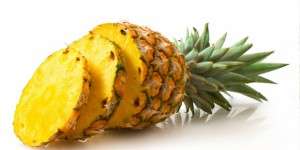April 18, 2017
Allergies keeping you overweight, unfit & miserable?
You eat well, you workout regularly, yet every spring your allergies seem to slow you down and sabotage it all!
Relentless histamine reactions wreak havoc on our bodies, zap our energy, slow metabolism, and inhibit our fitness & wellness gains. Many individuals resort to medications that bring temporary relief at best, whilst crippling their own natural defense mechanisms, further reducing metabolism, contributing to bloat and digestive issues, and potentially contributing to nutritional deficiencies in the body.
But wait… there’s a NATURAL BENADRYL that doesn’t carry those same risks and side effects – it’s called FOOD.
The daily grind with these relentless symptoms can become unbearable, and many individuals resort to allergy medication such as Benadryl or Claritin. Though most anti- histamine medications may provide relief, they also can produce unwanted side effects and can reduce your own natural defences against allergens. Side effects includes dry mouth, drowsiness, dizziness, nausea and vomiting, restlessness or moodiness, blurred vision, and confusion. Longterm use can also lead to deficiencies in the body. Tough price to pay for temporary relief. But at the time, oh so worth it! I get it.
There might be a better way. Instead of jumping right to the medication, turning the focus on your nutrition might prove beneficial. Many foods we have access to and eat often actually can help your allergies. Now that’s good news!
Foods such as onions, peppers, berries and parsley all contain quercetin and can reduce allergy symptoms. Quercetin is a plant pigment flavonoid and is commonly found in many fresh produce. It possesses powerful antioxidant and antihistamine qualities. Quercetin also inhibits the release of histamine in the body, and therefore minimizes allergic reactions. Other foods rich in quercetin include apples, tomatoes, cruciferous vegetables (broccoli, cauliflower, cabbage), leafy greens (spinach, kale, collards), and citrus fruits.
If you’re prone to seasonal allergies, start adding more of these foods to your daily menu now – onions to your dinner dishes, extra berries on your oatmeal, an apple for an extra snack. Accumulatively build up your defences to help reduce those pesky allergy symptoms.
Bromelain is an enzyme that is found in pineapple that not only optimizes the absorption of quercetin in the body, but can also reduce tissue swelling, break apart mucus, and provide respiratory congestion relief. Now that the weather is getting warmer, it’s time to bring out the pineapple! Pineapple is the highest whole food source of natural bromelain.

Incorporating other fruits and vegetables that are high in vitamin C is also crucial for mitigating nasty seasonal allergies. This well-known immune-boosting antioxidant vitamin contains its own natural antihistamine, but also helps to deconstruct histamine levels in the bloodstream. In addition to consuming more vitamin C rich foods in the diet, supplementing with 2000 mg of vitamin C can cut histamine levels (which is what triggers allergy symptoms) by up to 40%, thereby improving your airways and breathing. Great reasons to add more strawberries, oranges, kiwis, tomatoes, peppers and other vitamin C rich foods to your diet.
I know, you’re thinking “gimme something other than fruits and veggies”! How about a juicy BBQ’ed salmon fillet?! Rich in omega 3, which reduces inflammation and immune responses, salmon and other omega-3 rich foods help to minimize eosinophil activities (immunological response) in the body, whether those responses are a result of a digestive allergy, toxicity in the environment, temperature extremes, overexposure or stress. Eosinophils promote inflammation to contain and isolate an immune response at the infection site. However, when this happens, healthy body tissue can be damaged and become severely inflamed. Foods high in omega-3 anti-inflammatory fatty acids minimize this process. Include salmon, halibut, tuna, flaxseed, chia seeds, walnuts, soybeans, and spinach in your diet regularly to conquer these allergy responses.
With so many evidence-based and tasty foods rich in allergy-fighting compounds available in your grocery store, take charge now and don’t let seasonal allergies get you down!
Good-Food News Re-Cap:
Remember, it is excess histamine in the body that creates those unpleasant allergic responses. In addition to the histamine produced inside your body during these responses, there are also a variety of foods that naturally contain histamine, cause the release of histamine, or block the enzyme that breaks down histamine (diamine oxidase) inside the body. So as you can guess, it’s vital to avoid these foods if you’re dealing with terrible seasonal allergies.
FOODS TO LOSE:
- Fermented alcoholic beverages, especially wine, champagne and beer
- Fermented foods: sauerkraut, vinegar, soy sauce, kefir, yogurt, kombucha, etc (note: these foods are great to add to the diet year-round to support optimal intestinal health, which plays a direct role in building immunity and reducing allergen responses in the body. However, in the midst of allergic reactions avoiding these foods is best)
- Vinegar-containing foods: pickles, mayonnaise, olives
- Cured meats: bacon, salami, pepperoni, luncheon meats and hot dogs
- Soured foods: sour cream, sour milk, buttermilk, soured bread, etc
- Dried fruit: apricots, prunes, dates, figs, raisins
- Black and green tea (blocks the DAO enzyme that helps the body break down histamine)
Avoid the above foods, eat lots of fresh fruits, vegetables and omega-3 healthy fats to keep your body strong; as well as get adequate sleep, proper hydration, and overall good nutrition. The healthier and stronger your immune system is to start, the better off you’ll be during allergy season.
FOODS TO INCLUDE:
- Onion, Peppers
- Kiwi, Berries, Citrus, Apples, Pineapple, Grapes
- Flax & Chia seeds
- Fish (tuna, salmon, halibut)
- Soybeans
- Leafy greens (spinach, kale)
- Parsley
- Broccoli, cauliflower, cabbage
- Walnuts
Food May Be the Hero for your Seasonal Allergies
The entire contents of this website are based upon the opinions of Build Holistic Nutrition. Please note that Build Nutrition is not a dietitian, physician, pharmacist or other licensed healthcare professional. The information on this website is NOT intended as medical advice, nor is it intended to replace the care of a qualified health care professional. This content is not intended to diagnose or treat any diseases. Always consult with your primary care physician or licensed healthcare provider for all diagnosis and treatment of any diseases or conditions, for medications or medical advice, as well as before changing your health care regimen.
© BUILD NUTRITION 2026. ALL RIGHTS RESERVED. PRIVACY POLICY
Go ahead, creep us on social. You know you want to!

